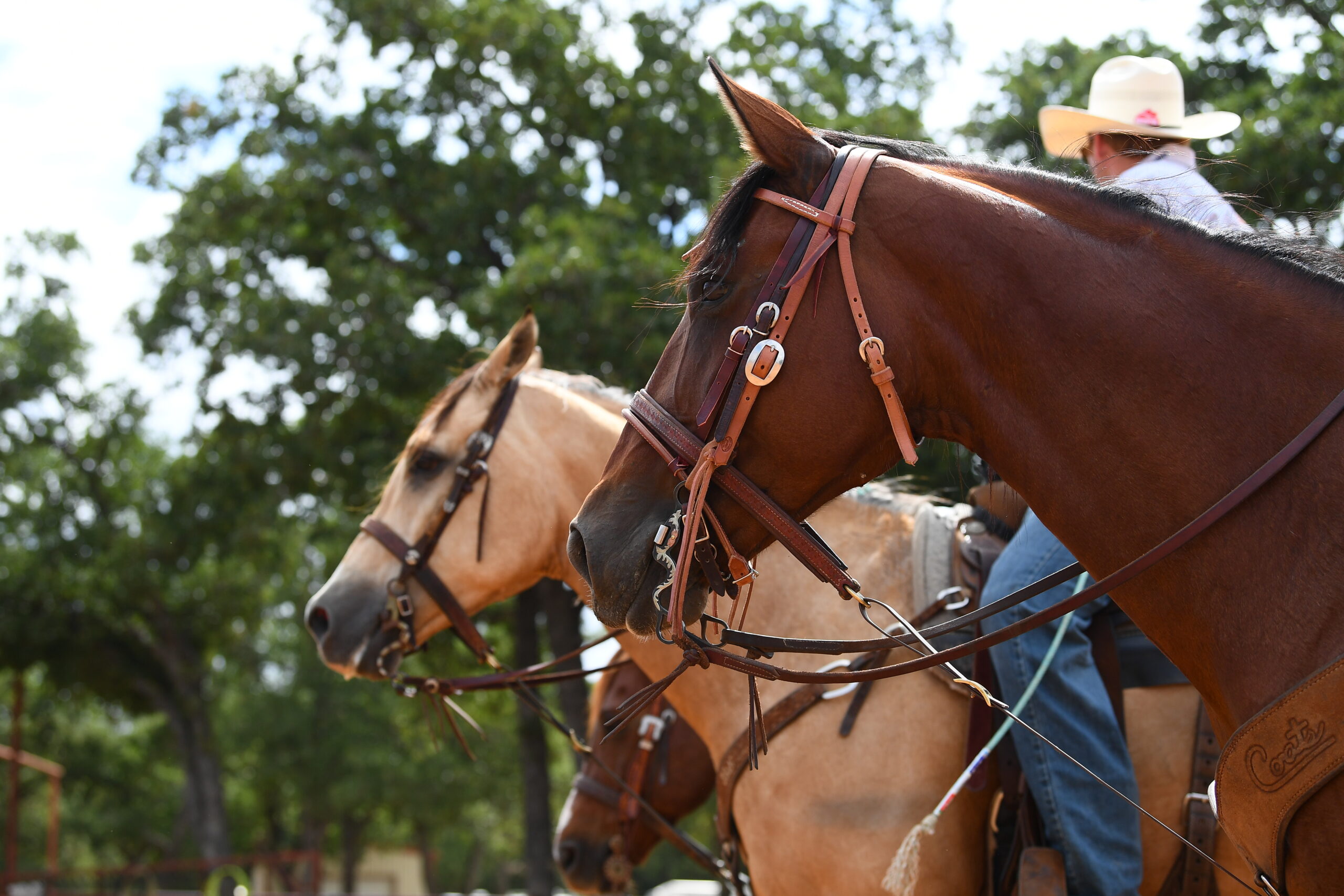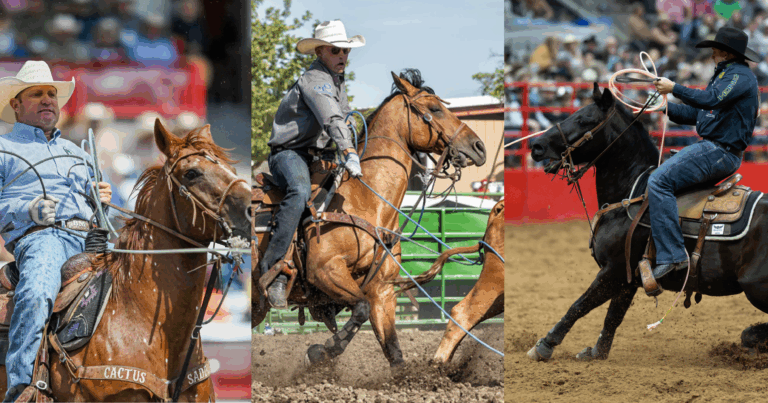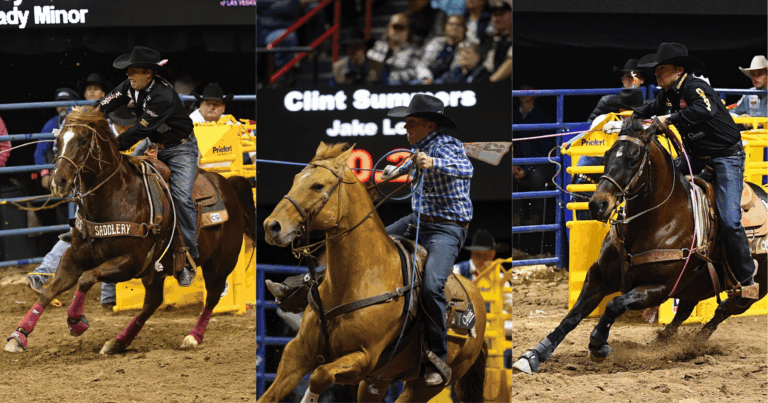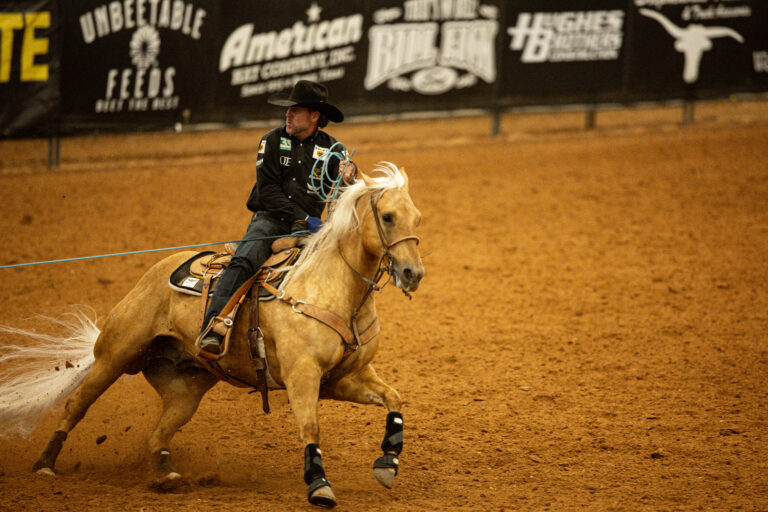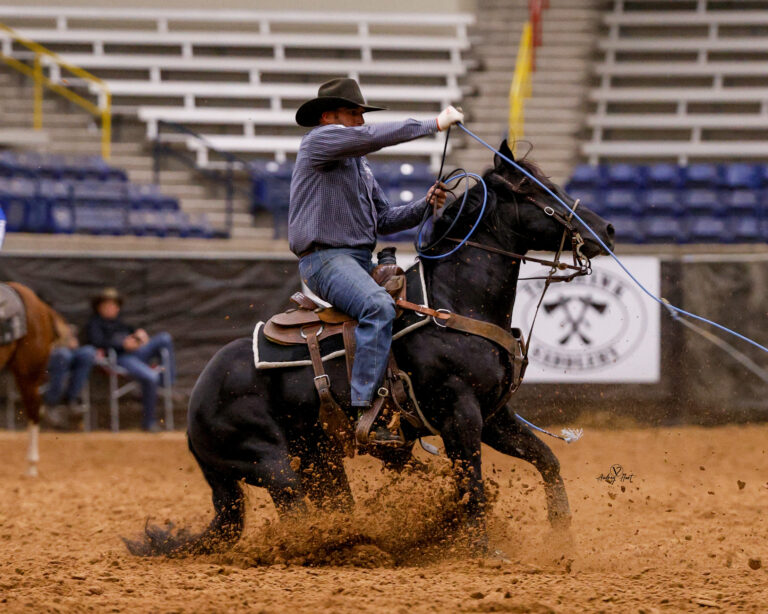Common sense isn’t all that common these days—especially when it comes to the horse market. With buyers desperate for a solid horse to take to World Series of Team Roping and USTRC qualifiers that pay out tens of thousands every weekend, there’s more demand than ever before.
But not everyone on the buying and selling sides are on the same page about how to navigate the advertising and trying of, negotiating on and paying for rope horses. Not everyone was raised the same when it comes to horse market etiquette, and not everyone has the same experience putting their money down on and parting with good horses.
With new buyers coming from non-traditional cowboy backgrounds, the cowboy code of buying and selling has gotten lost in translation. The horse industry is full of grey area, but our experts—including world champions and reputable horse trainers—help us make it all a little clearer by outlining some dos and don’ts of the horse business.
Table of contents
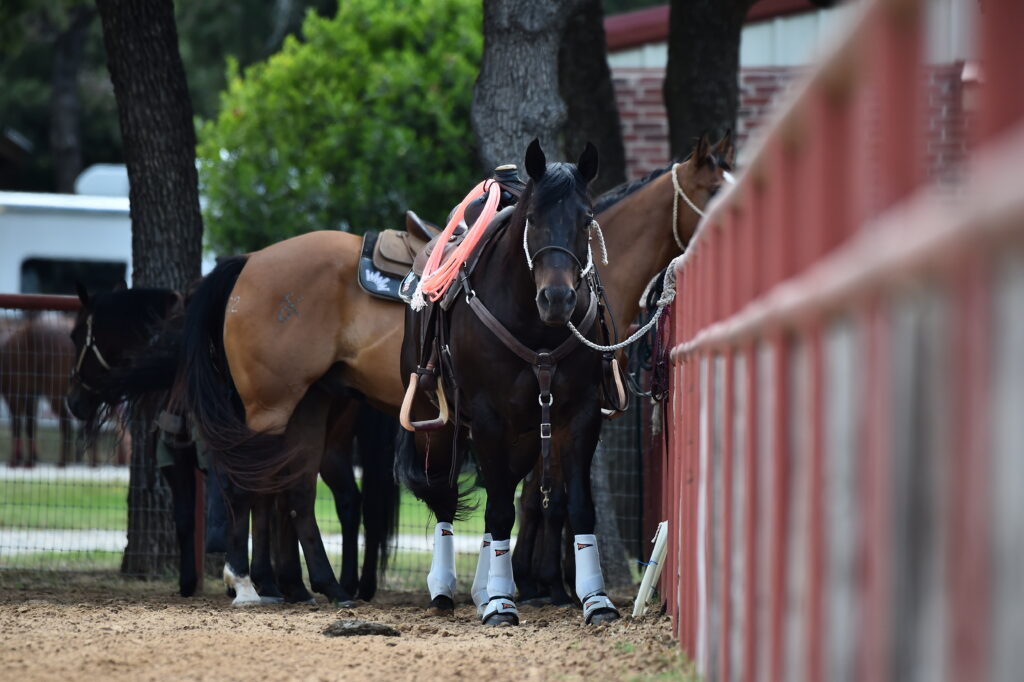
As a Seller
When Advertising
✔ Do give full disclosure.
Billie Jack Saebens: I tell every bad thing about the horse I can think of. I make it sound worse than it really is. I don’t want to sell anybody a horse that they’re not happy with in a week. If they still want to come try him, they can. Usually my bad things aren’t that bad. I don’t want to waste anybody’s time.
✔ Don’t misrepresent your horse.
Trevor Brazile: The way the horse is represented really sets the tone. If he’s over-represented, people have certain expectations, and as soon as he’s short on one aspect, they assume he’s short on all. I’m a return customer of people who under-represent their horses. They’ve seen what it takes and want to be careful not to ruin their reputation.
✔ Don’t talk the buyer into it.
Saebens: I will tell buyers if I think a horse is a good fit or not. I tell them if it’s too much horse, but if they still want him, there’s nothing I can do about it. Ideally, every horse I have has a home, even if the buyer doesn’t like him. I don’t want to talk anybody into buying my horses.
When Pricing
✔ Do consider who the horse will fit, then price accordingly.
Kaleb Driggers: I look at talent and where he’s best suited. Everything has a place. How pretty the horse is matters, too. I don’t always look at pretty for me, but looks are a plus. For a lot of people, that’s a big yes or no. A lot of times, price reflects that. The age of the horse is a major factor. With a World Series barrier, I see people riding younger and younger horses because they don’t have to score as much. It’s getting harder and harder to find one that does want to score, so if he does, the price reflects that. Everything has evolved into that.
✔ Do consider his strengths.
Brazile: Some horses have a lot of talent, but they’re hard to ride. Some horses have too many things to hold together. Talented and fragile is not a good combination. I’d take one that will do the same thing every time, with a little less talent. The great horses I’ve had are honestly the horses anybody can ride. Not all talented horses have the easy-to-ride trait. A lot of guys win on talented horses, but they’re pushing more buttons and holding things together behind the curtain. A 5-roper could have ridden most of the great horses in the sport’s history. But those are the ones with the highest price tag. If your horse is talented but has too many buttons or is too fragile, then there are only so many people who can ride him, and his price needs to reflect that.
✔ Do consider dropping the price for a less-than-stellar vet check.
Brazile: I’ve taken money off because of a failed vet check. With a lot of soundness deals like arthritis or navicular, you’ve got five or six years before you even think about a real problem. You can’t buy a horse and expect to get more than eight years. I look at it like this—how long will the horse be able to be used. That’s the best-case scenario. Remember, we’re not selling houses, we’re selling horses.
✔ Don’t forget to do your research.
Lari Dee Guy: I research the market to see what horses like mine are going for and price mine accordingly. Especially these days, you can see how other horses are priced on the internet, through sales and through the grapevine. As a seller, doing your research on how to price can really make the difference in a sale.
When Showing
✔ Do consider allowing the buyer to try the horse at the roping if he’s advertised as jackpot-ready.
Saebens: If I’m selling a horse for $30,000 to $50,000, and I say he’s jackpot ready, I think you can take him to the jackpot and see. If I’m asking that much, I feel like a guy should be able to go to a roping with the horse. I’m not going to let a buyer haul the horse 10 hours, though, and most of the time I ask that he comes straight back to my house. I don’t want it to be a week-long deal.
✔ Don’t force a proven horse to continue to prove himself over and over, though.
Driggers: If the horse is already proven and has been a lot of places and there’s nothing more for a buyer to see, then I might let them try him. I very rarely do that with a great one.
✔ Don’t allow a buyer to put too much pressure on a green horse.
Saebens: At Dixon Flowers, we sell a lot of colts. People want to take a colt to a jackpot or take them home to try. I tell people exactly what that colt is, but I don’t want them taking him.
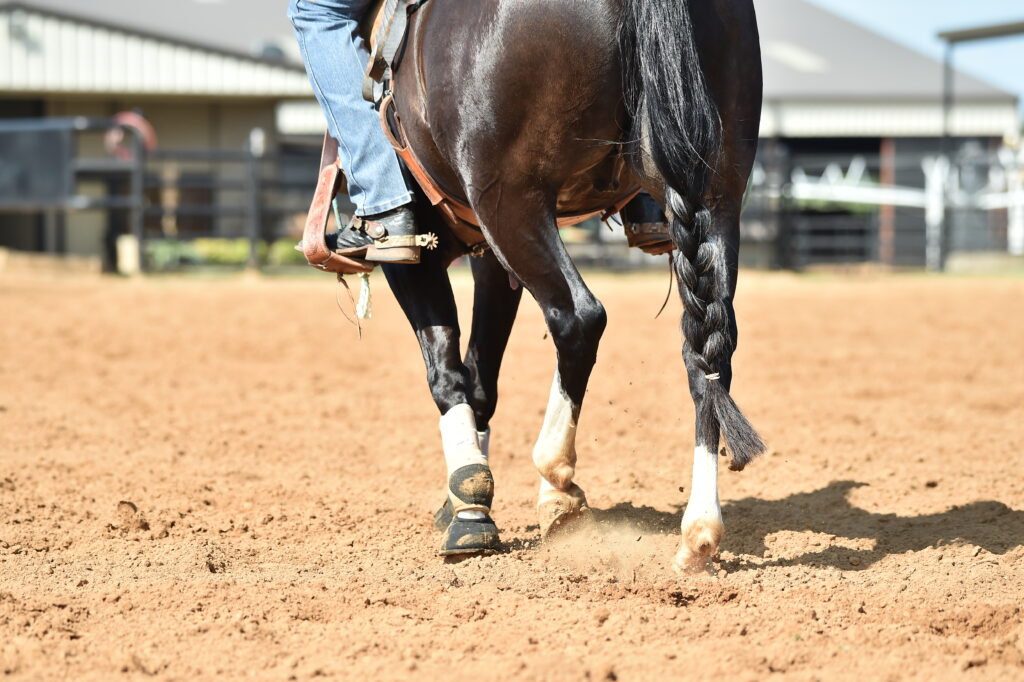
As a Buyer
Sight-Unseen
✔ Do research bloodlines, know the sellers and watch the horse move.
Saebens: You can spend so much money driving to buy a horse. You’ve got to be willing to take chances and hope it works out. When you’re trying to buy 20 or 30 horses a year like we do, and it costs $250 to drive to each of them to try, plus your time, that gets way expensive. I buy a lot of colts. I look at how they move, how they’re bred and who has them, and I take a gamble. Sometimes it works, but you’ve got to know that sometimes it doesn’t, and you’re taking a risk.
✔ Don’t expect perfection.
Driggers: I will buy expensive horses without ever trying them. People think I’m crazy, which I probably am, but it’s always seemed to work out good for me. It’s very rare that the first time you ride a horse, you’ll like him as much as you do on the fifth or tenth ride. You figure out so much more after riding him for a while as your own.
Trying One
✔ Do make sure he’s the one.
Saebens: If you run six, eight, ten steers on a horse, you should know whether you like him or not. Like I said, if you want to, you should be able to take him to a jackpot, but if you run a few steers, you should know basically whether you like him or you don’t. If you’re spending your last dollar you have saved, you’ve got to make sure it’s the best one for you.
✔ Do have an idea of traits you are sure you want.
Driggers: You should look for the tools in a horse that you know you like, and that’s different for every person. If you don’t like reaching, you’ll take a horse that doesn’t score quite as good and really runs. There’s only a handful that can score and run, and they’re six-figure horses. If you like to rope in front of you, you want more score and less run. You’ve got to be able to see if you’ll make him better after five rides. Rarely will one blow you out of the water and do everything you love on that very first ride. Whoever has been riding him probably doesn’t rope exactly how you rope. Can you live with it if he doesn’t get any better?
✔ Don’t talk yourself into a horse that doesn’t fit.
Saebens: I have a rule I try to stick to for myself. I can really talk myself into liking a horse—it’s something I’m really bad about. So, I will run five steers, and if I miss the first two, I’m not buying the horse. I don’t care how good he feels. And, if I rope good on him, I’m not going to run 20. I want it to hit right off that badly. I don’t want to talk myself into liking him. When I’m buying a finished horse for a decent amount of money, the horse either fits or it doesn’t.
Vet Check
✔ Do discuss soundness expectations with the owner first.
Brazile: You obviously discuss it with the owner. If they go through the trouble to tell you how sound he is, and then he’s not, then you should have a discussion about the price. If the seller tells you he’s easy to maintain, you need to know there’s some level of expectancy that he won’t pass a vet check 100-percent. It’s all in representation.
✔ Don’t miss out on a good horse because of a little maintenance.
Brazile: I’ve never seen a great horse that would pass a vet check with flying colors. There’s a reason horses are great, and that’s because they’ve paid their dues and been used, and that training and seasoning comes with some maintenance involved. You have to weigh whether you can spend a lot of money on a horse at the vet and you can win on him, or if you’re just roping for fun and don’t care if you win anything. You will miss out on a lot of good horses being scared of a little bit of maintenance.
Negotiations
✔ Do have reasonable expectations on the price based on the caliber of horse you need.
Driggers: A lot of people will say a horse is only worth $15,000 and maybe you’re asking $20,000. If that horse is worth $15,000, and you rope well enough on him to win $5,000 in the first two weeks you own him, he’s really worth $30,000. You’ve just got to know what you’re wanting out of your purchase and you should be realistic about how much you need to spend based on your roping goals.
✔ Don’t lowball.
Guy: I try to give what I feel a horse is worth so, even if I make offers I try not to lowball. If a horse is priced way higher than I feel it’s worth, I will just pass.
Brazile: If you think the horse is worse than 75 percent of what they’re asking, I’d just hold your tongue. Some people get offended if you tell them to take 10 percent off. If they’re willing to negotiate, they’ll usually ask what you think he’s worth or what you’d be willing to give. There’s enough horses out there, that I try not to price other people’s horses because those relationships are worth more than the horses. That’s setting yourself up to hurt somebody’s feelings.
✔ Don’t expect your money back.
Brazile: Under no circumstances do I ask for my money back in a horse deal. As a seller, I’ll usually trade horse flesh or help them find a new buyer if it came from me. But, the way I was raised, under no circumstances do I ask for my money back. If I’m buying a horse, if I try them, and I buy them, I deal with whatever comes. That’s the reason people vet-check and try a horse. This isn’t Walmart.
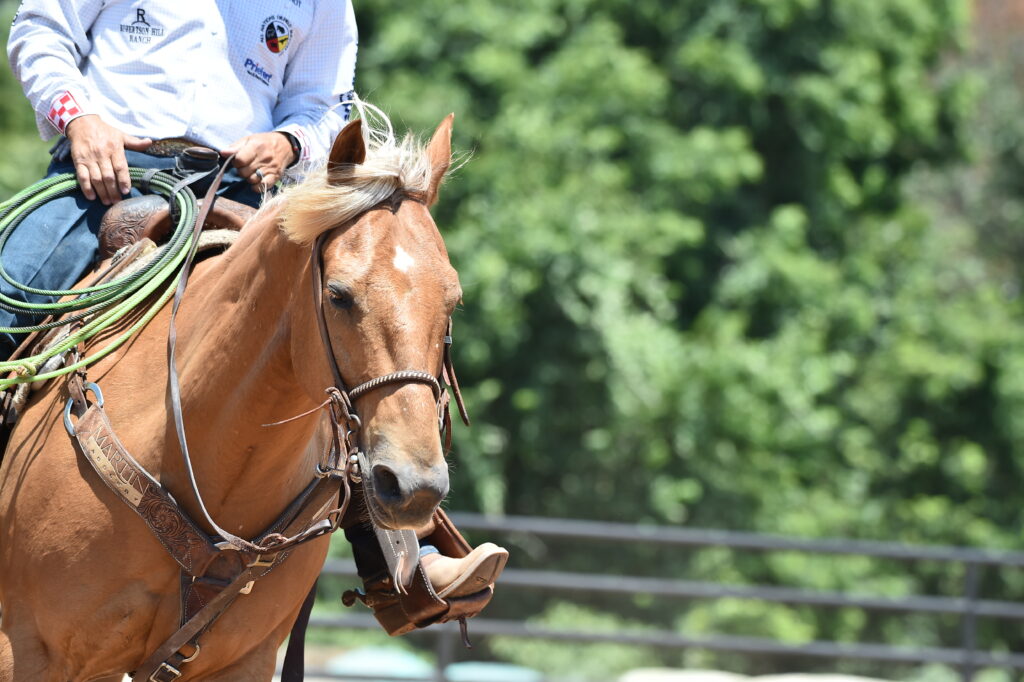
Horse Sales
Horse sales can be a one-stop-shop for buyers and sellers, and a darn good option if you’re into cutting out the hassle of trying horses across the country. At sales like the Billings Livestock Horse Sale, owned and managed by Jann Parker, and the Clovis Livestock Horse Sales, run by Steve Friskup, the days of horse traders unloading problem horses on unsuspecting buyers are a thing of the past.
As a Seller
Sellers get sick of advertising horses, answering dozens of phone calls and Facebook messages, having potential buyers no-show them and missing ropings or family functions to show horses, Parker said.
“They’re over it,” she said. “It doesn’t matter if you have name recognition, have been to the NFR or are a 4-H kid down the road, they’re going to wear your ass out. As a seller, you can put all your energy into that sale and on that day, and it’s over. Good horses go to good horse sales for that reason.”
To get the most out of your horse at a sale, Friskup said it’s critical to sell to the right buyer.
“Don’t oversell your horse and give full disclosure,” Friskip said. “Make sure that your customer will come back and buy another one from you. If he’s young and can’t run 15 in a row, that’s fine, just don’t tell them different than that. Money is money, but at the end of the day you’ll have a headache when it’s all over.”
As a Buyer
✔ Buying at a horse sale is all about doing your homework.
“The number-one thing, when people have problems, is because the buyer didn’t shop the horse,” Parker said. “They didn’t make the calls prior to sale day. I’m all for phone bids if you’re doing your homework, but that is why we do not broadcast this sale. I want you to know what you’re going to buy. You call somebody, they say he’s good in the box and strong across the line, but you watch him go and you see that’s not good enough by your definition. To the guy who’s selling him, that’s good enough, but to you, he’s moving around in the box, and that’s not good enough. But if you’re there, there might be somebody who sent a horse in and says nothing really great about him in the ad, and then you see him and he’s the bomb.”
✔ Being critical of your own abilities is also key when evaluating a horse in a sale catalog or preview.
“The first thing I’d say is to listen to your eyes and not your ears,” Friskup said. “The biggest thing in the auction business is making sure people get matched to the right horse in a short period of time. We operate under full disclosure everywhere we go. We see people misjudge a horse that might be green, or a horse that’s way more high-powered than they need. Know your limits. If a horse fits a 7.5 header, you, being a 4, won’t be elevated to a 7.5 because you buy that horse.” TRJ




